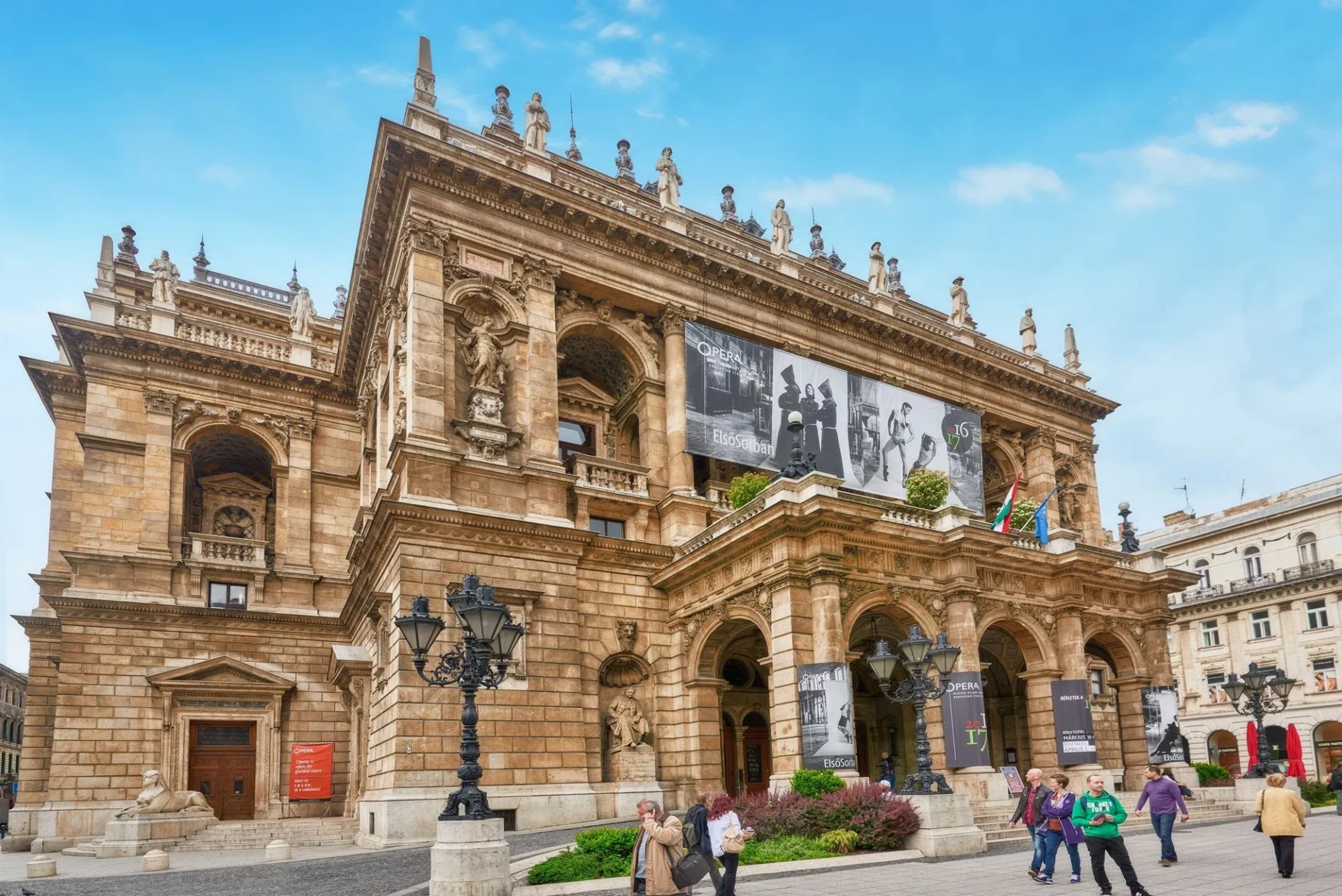
Classical concert halls in Budapest
If classical tunes are music to your ears, check out the best concert halls in Budapest from the Opera House to the best folk and jazz clubs in town.
O
C
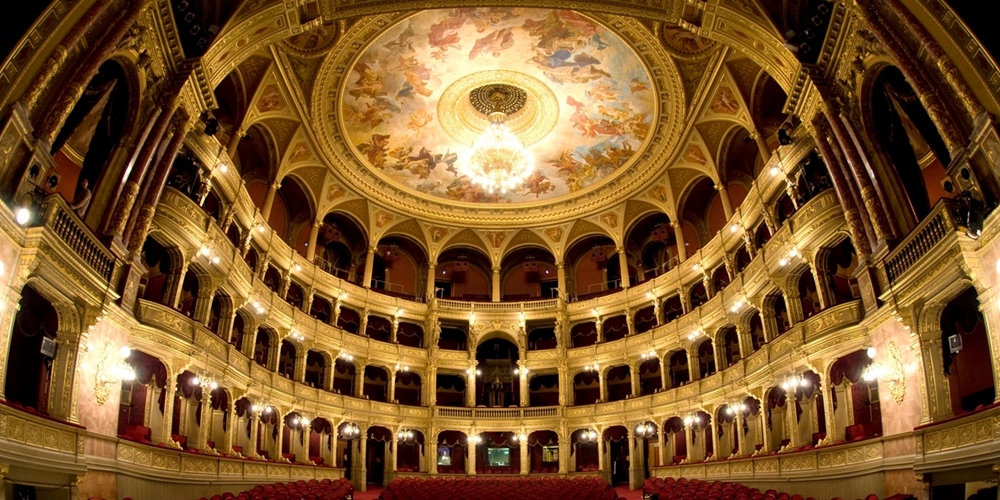
As the home of world-famous composers, such as Béla Bartók and Ferenc Liszt, Budapest is a vibrant cultural hub for classical music yet today. With many great concert halls in the inner city, you can find classical concerts, operas, folk music, jazz and more all-around Budapest – many of which are easily reachable by the Hop-on Hop-off buses. Take a look at our complete list of the greatest venues, bringing you the grandest arias of the State Opera House, the jolliest jazz of the Budapest Music Center, and the finest folk of the Fonó Music House – just to mention a few. And once you’ve heard it all on the classical side, we’ve also collected the best concert venues with pop, rock, and festival vibes in another JustBudapest article.
1. The Hungarian State Opera House
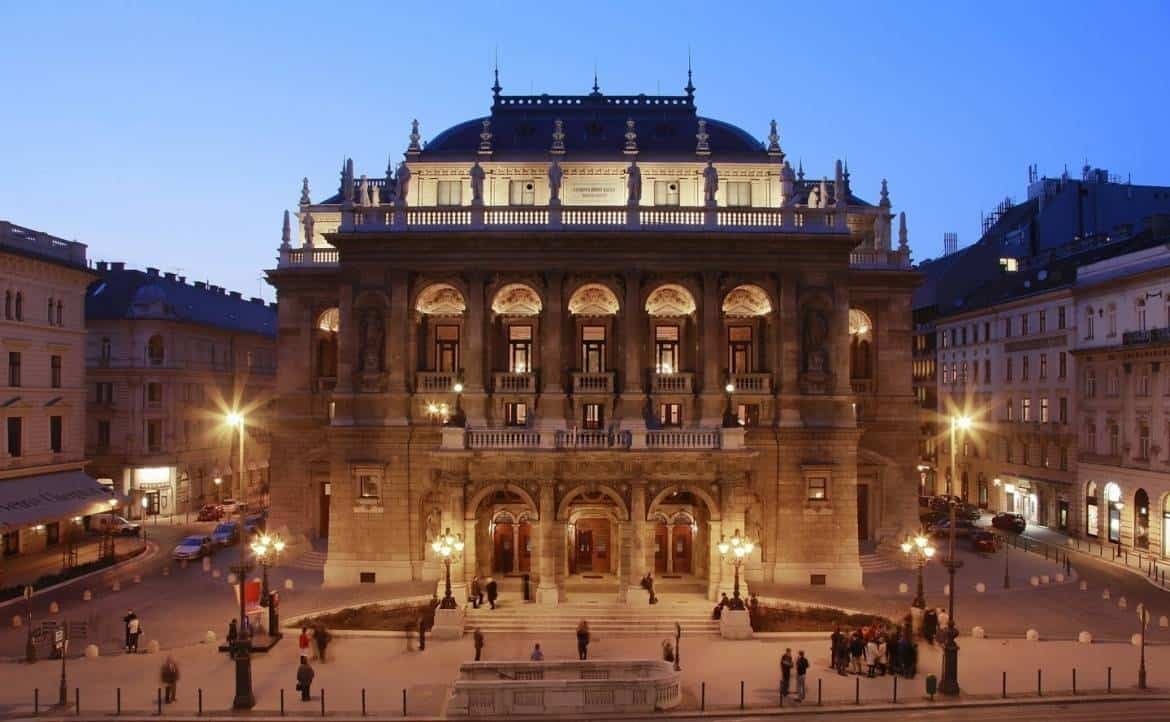
When strolling along Andrássy út, make sure to stop by and marvel at one of the grandest buildings of Budapest, the Hungarian State Opera House (Magyar Állami Operaház).
The impressive Neo-Renaissance building with Baroque ornaments inside is the masterpiece of the famous Hungarian architect Miklós Ybl (among others, St Stephen’s Basilica and the main building of the Corvinus University of Budapest were also built according to his plans), with its crown jewel as the glamourous grand staircase.
Opened in 1884, the Opera House creates the perfect balance of tradition and innovation, of classical and contemporary, and of Hungarian and international artists. Its horseshoe-shaped, 3-storey auditorium can host up to 1,300 viewers and its repertoire includes operas, operettas, and ballets, with “The Nutcracker” as its staple piece, usually played around the Christmas holidays.
2. Vigadó Concert Hall
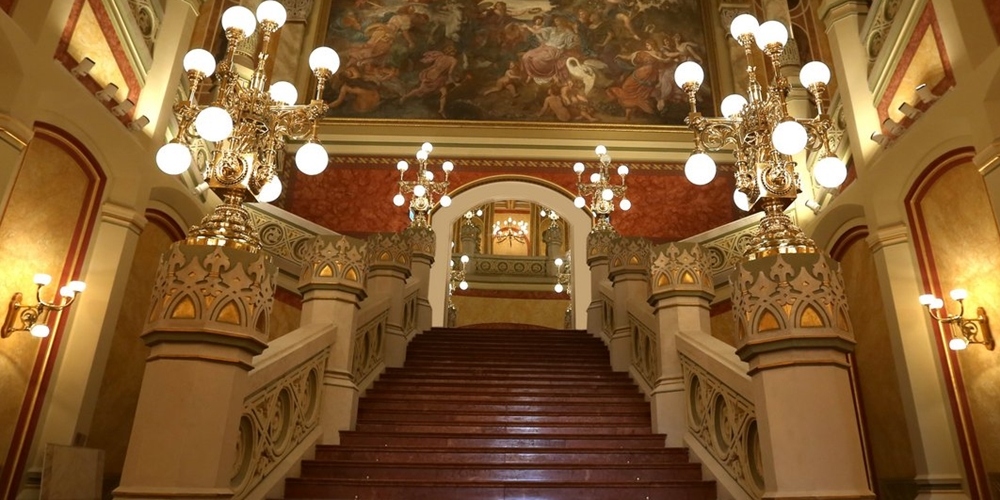
Situated on the scenic Danube promenade of the inner city of Pest, Vigadó Concert Hall (Pesti Vigadó) has been a center of social life for all ages since its opening in 1865. Not only did it house concerts by Liszt, Erkel, Bartók, Wagner, Strauss, and Dvorak, but it also held the most popular balls of the 19th and 20th centuries. The building got badly damaged during World War II and was only reopened in 1980. After another round of renovations in 2004, by now Vigadó regained its old glory to be an essential part of the Budapest cultural scene, as well as a must-seen tourist spot.
Today it serves as a venue for concerts, theatre performances, film premieres, and exhibitions, and it can also be explored during English language guided tours that include the panorama terrace with stunning views over the Gellért Hill and the Castle District on the Buda side.
3. Opus Jazz Club in the Budapest Music Center
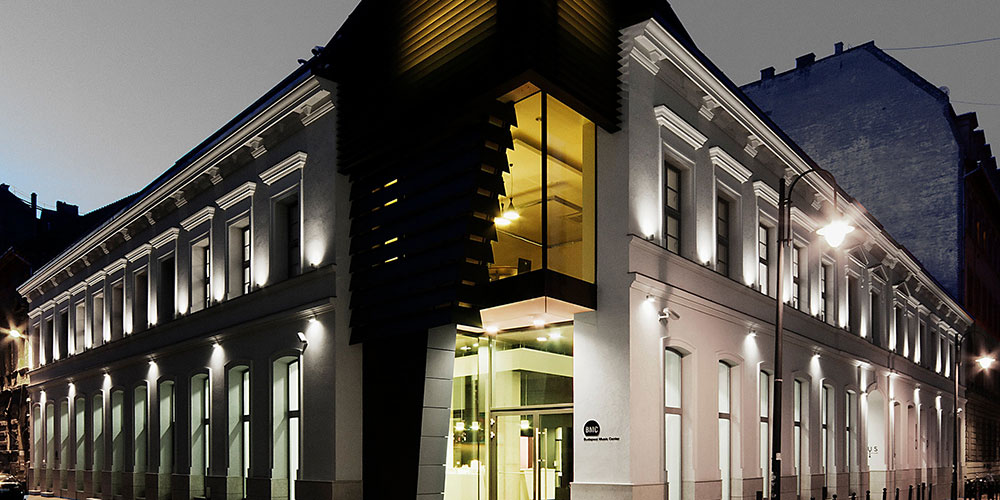
Opened in 2013, Budapest Music Center, or in short BMC, is the youngest concert hall in the Hungarian capital. Walking by its bare Neo-Classicist building, no one would expect to find modern décor and exquisite melodies within. With its 350-seat concert hall that offers a unique and intimate atmosphere of chamber performances of the greatest classical performers, BMC acts as a multifunctional events hub.
It also houses Opus Jazz Club which offers the jolliest jazz nights in town, as well as a fine dining restaurant for those also hungry for Hungarian culinary treats. And if you’re also up for topping the night with yet another local delicacy, make sure to taste some quality wine from the region.
Summary of
Opus Jazz Club in the Budapest Music Center
tuesday 09:00:00 – 20:00:00
wednesday 09:00:00 – 22:00:00
thursday 09:00:00 – 22:00:00
friday 09:00:00 – 22:00:00
saturday 10:00:00 – 22:00:00
su closed.
4. Liszt Music Academy
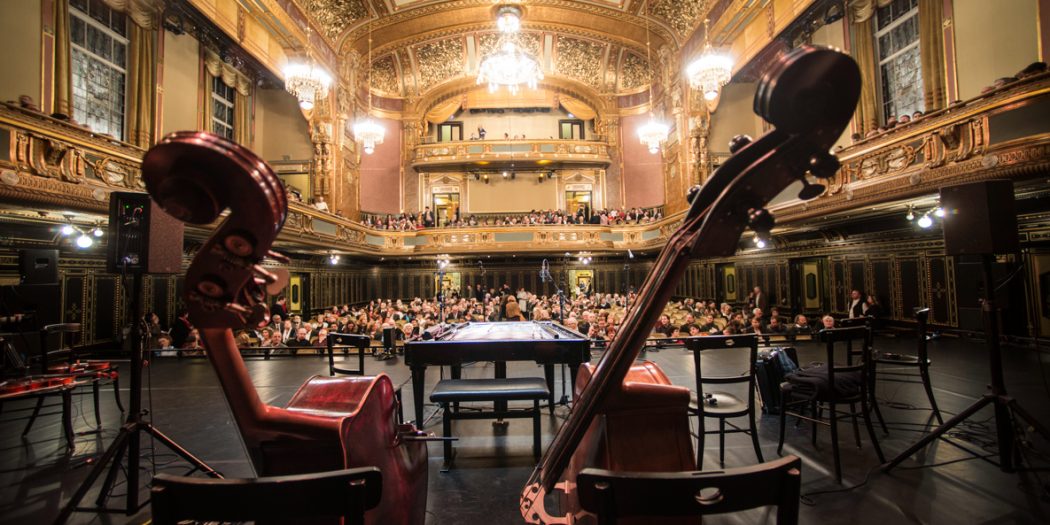
Beyond its Art Nouveau building of Liszt Music Academy (Zeneakadémia) lies more than a concert hall – it’s the heart of classical music education in Hungary. Founded by no less prominent figure of the Hungarian music scene than the great composer Ferenc Liszt himself, the university opened in 1907 and acts as the most prestigious music conservatory in the country ever since. The Academy hosts classical, opera, jazz, and folk-world performances of Hungarian and international musicians on a regular basis.
To preserve the peace of the education programs, the building is only open to the public during concert nights, and even then, viewers can step in only an hour prior to the performance. Alternatively, you can participate in guided tours that cover the ground floor, the first-floor foyers, the Grand Hall, and the Sir György Solti Chamber Hall. Tours start every day at 13:30.
5. Fonó Music House of Buda
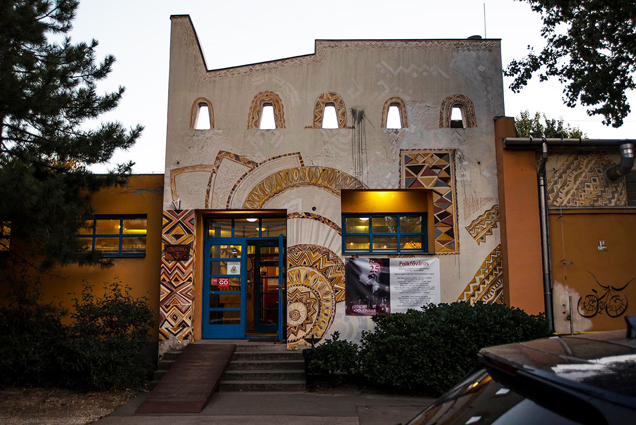
As its name suggests, Fonó (a traditional communal place according to the Hungarian tradition) is all about preserving and reviving folk traditions. Upon its opening almost 20 years ago, it set the goal of preserving and fostering Central European folk music, which mission broadened to also often welcoming jazz and ethno-jazz artists these days. If you want like to experience authentic Hungarian folk or world music at its best, just pick a date and join one of Fonó’s live concerts, festivals, or dance houses – where you can even pick up some folk-dance steps too.
Summary of
Fonó Music House of Buda
tuesday 10:00:00 – 21:00:00
wednesday 10:00:00 – 21:00:00
thursday 10:00:00 – 23:00:00
friday 10:00:00 – 02:00:00
saturday 14:00:00 – 23:00:00
su closed.
6. Béla Bartók National Concert Hall in the Palace of Arts (Müpa)
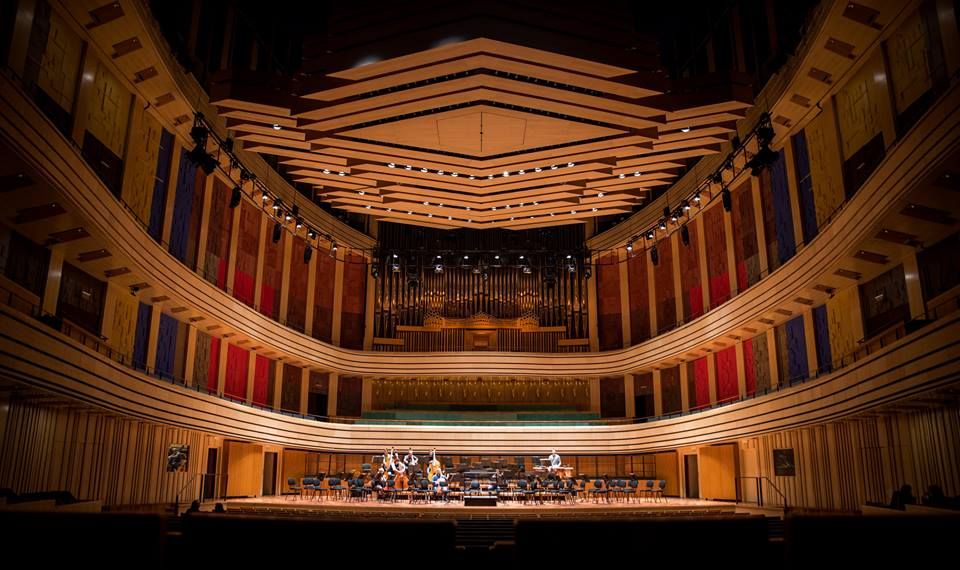
The glass complex of the Palace of Arts (Művészetek Palotája, or in short, Müpa) lies by the southern banks of the Danube on the Pest side of the city, right next to the National Theater. With 5 main concert halls (and a few smaller concert venues), Müpa is a true cultural hub of theater performances, classical concerts, exhibitions, and museums. Acting as the National Concert Hall, its grandest auditorium, Béla Bartók Concert Hall is without doubt the cream of the crop in the building.
Béla Bartók Concert Hall has been designed to offer the feel of a grand Gothic cathedral with its 42-ton canopy, 58 movable resonance chambers, as well as the unique wall and floor coverings (the wall is made of Canadian maple with walnut facing, while the floor and seats are of Chilean cherry) that all allow for the special atmosphere and acoustics. Its impressive size is further characterized by the 1,600-seat auditorium and the 470-square-meter stage. A concert in this hall is definitely an experience for life.
Q & A
- What are the classical concert halls in Budapest?
- There are many great classical concert halls in Budapest offering opera, jazz, and folk music performances. The most prestigious ones are the Hungarian State Opera House, the Vigadó Concert Hall (Pesti Vigadó), the Liszt Music Academy (Zeneakadémia), the Budapest Music Center with Opus Jazz Club within its walls, and the Béla Bartók National Concert Hall in the Palace of Arts. For the fans of Central European folk and world music, Fonó Music House of Buda is the place to be.
- What is the Hungarian State Opera House famous for?
- The repertoire of the Hungarian State Opera House includes the most prominent classical and contemporary operas, operettas, and ballets of Hungarian and international artists, with “The Nutcracker” as its staple piece, usually played around the Christmas holidays.
- Who are the most prominent figures of the Hungarian classical music scene?
- The most prominent Hungarian composers of all time are Béla Bartók and Ferenc Liszt, after whom prestigious concert halls were named after in Budapest, such as the Béla Bartók National Concert Hall in the Palace of Arts, and the Liszt Music Academy, which functions as the national music conservatory in Budapest.
For Sale pub Budapest – a place where you can relax beyond limits, one of a kind that you will not forget in your life!









Your experience is important.
Anything you have not found?
Ask a Question
Please log in to write a review.
There is no review yet.